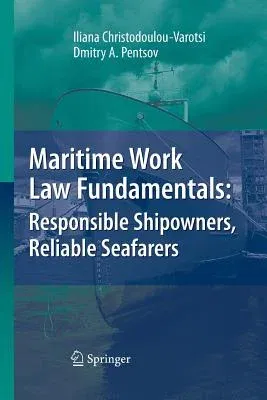Iliana Christodoulou-Varotsi
(Author)Maritime Work Law Fundamentals: Responsible Shipowners, Reliable Seafarers (Softcover Reprint of the Original 1st 2008)Paperback - Softcover Reprint of the Original 1st 2008, 23 August 2016

Qty
1
Turbo
Ships in 2 - 3 days
In Stock
Free Delivery
Cash on Delivery
15 Days
Free Returns
Secure Checkout
Print Length
823 pages
Language
English
Publisher
Springer
Date Published
23 Aug 2016
ISBN-10
3662518457
ISBN-13
9783662518458
Description
Product Details
Book Edition:
Softcover Reprint of the Original 1st 2008
Book Format:
Paperback
Country of Origin:
NL
Date Published:
23 August 2016
Dimensions:
23.39 x
15.6 x
4.24 cm
ISBN-10:
3662518457
ISBN-13:
9783662518458
Language:
English
Location:
Berlin, Heidelberg
Pages:
823
Publisher:
Weight:
1156.66 gm

